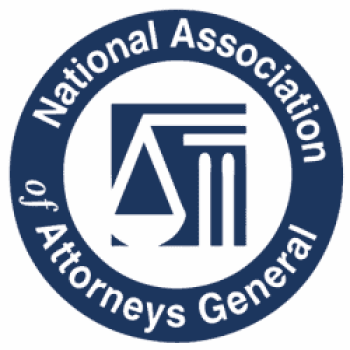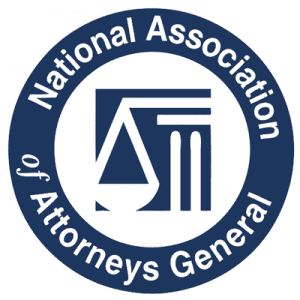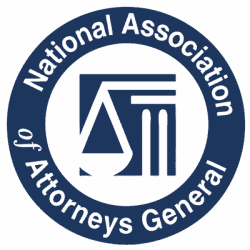The 2021 National Association of Attorneys General/ National Association of State Charity Officials (NAAG/NASCO) was held on October 13, 2021. Like the previous year, the conference was a virtual. The agenda touched on issues of COVID-related impacts, enforcement actions, state and charitable cooperation, charities engaging in for-profit efforts, and an inside look into the work of state enforcers. Here are a few topics covered by state regulators and other panelists at the 2021 NAAG/NASCO Conference in more detail.
Impact of COVID-19
The impact the COVID-19 pandemic has had on the charitable sector was a focus of the conference. Yael Fuchs, NASCO President and Co-Section Chief for the Charities Bureau of the New York Attorney’s General Office, pointed to many state regulatory changes in areas such as virtual meeting guidance, registration deadline extensions, changes to signature requirements, and modified filing requirements. Some of these changes can be found in the NASCO chart of state registrations laws. While many of the pandemic related modifications are set to, or have already, expired, NASCO is looking for feedback as to what virtual components and guidance modifications should stay. For further information on virtual member meetings, please read Virtual Nonprofit Board and Member Meetings in the Time of COVID by my colleague Jeremy Coffey.
Ms. Fuchs described the effects the pandemic has had on filings requiring regulatory approval. While the trends are anecdotal, it was a shared observation that charity regulators are seeing an increase in divestment of real property, deaccessioning of art, mergers, and amendments to certificates of incorporation. She further noted that charity regulators have not yet seen an increase in endowment modifications and dissolutions, but based on historic trends, they expect these types of transactions may be forthcoming in the near future.
Federal Trade Commission (FTC)
Tracy Thorleifson, Attorney and FTC’s leading expert on charitable solicitation fraud, highlighted some of the key work the FTC has been doing in the charitable sphere, and explained the role the FTC plays in charitable regulation. Specifically, the FTC has regulatory authority under the FTC Act to prosecute sham charities engaged in fraudulent and deceptive fundraising activities. The FTC also has oversight over robocalls when made by fundraisers hired by charities (i.e., professional fundraisers) on the federal level. The FTC encourages everyone to report any suspected or known charitable fraud activity to www.reportfraud.ftc.gov.
Policy Updates and Trends
Courtney M. Aladro, Assistant Attorney General and the Chief of the Non-Profit Organizations/Public Charities Division at the Massachusetts Attorney’s General Office, NASCO Board Member, and Chair of the Policy Committee, presented a handful of legislation and policy changes from the past year.
State Legislation
The first focus was on two state legislative changes. The Washington Nonprofit Corporation Act (Chapter 24.03 RCW) makes changes to the existing regulatory regime. First, it updates the rules governing electronic communications and member meetings. Second, it enhances the Attorney General oversight of charitable assets held by nonprofit corporations. Finally, it allows for “domestication” and for-profit to nonprofit conversion. This new act will go into effect January 1st, 2022.
The other state legislation highlighted was the California Bill on oversight of charitable giving on online platforms (AB 488), which was signed into law on October 7th, 2021. The bill requires online platforms facilitating charitable fundraising to register with the Attorney General’s office. It also requires certain disclosures and prompt distribution of donations. Finally, it prohibits solicitations for charities that are not “in good standing” with the Attorney’s General Registry of Charitable Trusts, the Franchise Tax Board, or the IRS. NASCO has a crowdfunding working group that is continuing to monitor online fundraising activities. For a deeper understating of this bill, please read California Enacts New Law to Regulate Charitable Fundraising Platforms by my colleague Karen Wu.
Federal legislation
Ms. Aladro highlighted two federal bills applicable to charitable organizations. The first bill was the Fraud and Scam Reduction Act (HR 1215). This act was supported by NAAG/NASCO in an open letter sent on behalf of 47 states. The bill passed the House on April 15, 2021 and is currently awaiting Senate approval. The bill, if passed, would establish a Senior Scams Prevention Advisory Group to support training and education efforts to identify and prevent scams targeting the elderly. The bill would also establish the Office for the Prevention of Fraud Targeting Seniors in the Bureau of Consumer Protection of the FTC.
The other federal bill discussed was the Accelerating Charitable Efforts Act (S 1981, known as the “ACE Act”). This bill, which was introduced on June 9th, would create new rules for private foundations and donor-advised funds (DAF). The legislation takes aim at regulating DAF funds specific to deduction eligibility and payout requirements and timelines.
Supreme Court Decision
Americans for Prosperity Foundation v. Bonta was discussed. In this case California enacted a rule requiring all charities that fundraise in the state to disclose their confidential IRS Form 990 Schedule B, if they filed one, with the California Registry of Charitable Trust. The Supreme Court found this rule unconstitutional and struck it down. In doing so, it did acknowledge that states can obtain Schedule B information through subpoenas and audits, but only if there is an underlying reason. In response to this case, California, Hawaii, New Jersey, and New York have altered their Schedule B collection rules and/or practices. For more information on this case leading into the Supreme Court’s opinion, please read Schedule B Disclosure Cases Head to the Supreme Court – Is Donor Privacy Threatened? by my colleague Seth Perlman.
Alternative Nonprofit Fundraising
Brian Yacker, Adjunct Professor at the University of California Irvine, discussed issues surrounding alternative fundraising. Alternative fundraising can include many things (for example auctions or “virtual” bake sales), special event fundraisers such as games (raffles, bingo, etc.), virtual events (gala, run/walk, etc.), or crowdfunding. Some of these activities may generate unrelated business income tax (“UBIT”). If the amount of unrelated business activities become too substantial, it could jeopardize an organization’s tax-exempt status. It is therefore important that nonprofit boards keep a vigilant eye on the type of fundraising activities that generate UBIT to ensure that it does not become too substantial. It is also important that these activities are properly reported to the IRS on the Form 990. Failing to report properly could lead to tax liabilities, penalties, and an uncertain tax position.
Charities Working with Non-Charities
A panel of regulators discussed the various considerations an organization must take into account when deciding to partner with a non-charity. On the federal level, such considerations include the 501(c)(3)’s purpose, unrelated business taxable income, private benefit, jeopardizing investments, and self-dealing. On the state level, the considerations become much broader. An organization must consider, among other things, the various duties (loyalty, obedience, care, and accounting), the Uniform Prudent Management of Institutional Funds Act (“UPMIFA”, enacted in all states except PA), registration and reporting requirements, charitable solicitation laws, donor expectations, and charitable purpose. One of the panelists, Assistant Attorney General for Washington Joshua Studor, pointed to the 2019 American Law Institute’s Restatement of Charitable Nonprofit Organizations Law as a great resource for many of these state considerations.
Fundraising Events – Virtual, In-Person, and Hybrid
Sara Hall, Chief Legal Officer for St. Jude’s Children Research Hospital, spoke on the uncertainty of fundraising events. She noted an increasing expectation for returning to in-person events. As a lesson learned, Sara addressed the hybrid event. Ms. Hall noted the heightened challenges of hybrid events (both virtual and in-person). The logistical issues with both types are compounded when thrown together.
Ms. Hall also noted that, in the area of event contracting, force majeure clauses have become less reliable. Vendors are specifically excluding COVID and no longer excusing non-performance. It is important to negotiate at time of booking with catering that cancellation penalties will be credited towards future bookings and that you have a date to confirm your numbers before food is purchased.
Cryptocurrencies, NFTs, and Beyond
Ms. Hall also spoke to the burgeoning areas of cryptocurrency and NFT donations. Currently, cryptocurrencies are considered property for tax purposes. If a charitable organization wishes to accept cryptocurrencies, it is important that they set clear policies and controls for doing so. These include: establishing gift acceptance policies and safeguards that are consistent with the organization’s finance and audit procedures, custodian agreements for individuals with account access, and monthly reporting and auditing of their crypto wallet. It is also important that charities work with vendors and exchanges that are regulated by the Financial Crimes Enforcement Network (“FinCEN”) or the New York Department of Financial Services (“NYDFS”) if you are a New York entity. For more information on how charities should handle cryptocurrencies, please see What Nonprofits Should Be Asking About Virtual Currency Regulation and Fundraising by my colleague Jeremy Coffey.
- Benjamin Perlmanhttps://perlmanandperlman.com/author/benjamin/
- Benjamin Perlmanhttps://perlmanandperlman.com/author/benjamin/
- Benjamin Perlmanhttps://perlmanandperlman.com/author/benjamin/











